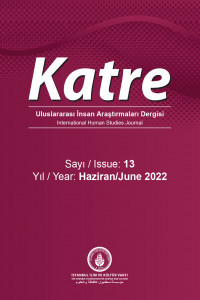The Problem of Evil in Ibn-i Sina and Said Nursî
In this study I will try to show the close philosophical and theological relationship between Said Nursî and Ibn Sina in the problem of evil. Nursî has been affected very deeply from the Ibn Sinaen theories and concepts. In his studies Nursî implemented many categories and concepts to explain and demonstrate theological and philosophical subjects which were under attack of modern materialistic and atheistic philosophy. The degree and scale of effecting is very evident, especially in the problem of evil and its reconciliation with God’s wisdom. In this field one can treat Nursî as a pioneer figure in the transforming the Ibn Sinaen theory of evil into Sunni theology in the twentieth century. To see Nursî as a pure transformer, of course, leads us to a misunderstanding, Nursî has, at the same time very new ideas, analogies and argumentations in this topic. Ibn Sina’s theory of evil however continued in Shiite world through theologians, like Tûsî and Mulla Sadra, Sunni scholars didn’t interest mostly with this system. In this study I will show the similarities and differences between Ibn Sinaen and Nursîen notion of evil and its reconciliation with God’s wisdom.
___
- Al-Ghazali. Kitab al-Mustasfa. v. 1. Beirut: Al-Risalah, 1997.
- Al-Qadı Adudiddin. Al-Mavakıf. v.8. In Sharhu’l Mavakıf as Sayid Sharif al-Curcani. Beirut: Dar al Kutubu’l Ilmıyye, 1998.
- Aydın, S. Mehmet. “The Problem of Theodicy in the Risale-I Nur”. In Ibrahim M. Abu-Rabi, ed. Islam at the Crossroads: On the Life and Thought of Bediüzzaman Said Nursî. Albany: State University of New York Press, 2003.
- Fakhr al-Din al-Razi. Al- Matalib al-Aliya. v.3. Beirut: Dar al-Kitab al-Arabi, 1987.
- Habermas, Jürgen. The Theory of Communicative Action (Trans. Thomas McCarty). v. 1. Boston: Beacon Press, Boston, 1987.
- Ibn Sina. Kitab an-Nacat. Beirut: Dar al-Afak, Beirut, 1982.
- Ibn Sina. Isharât wal-Tanbihât, with Commentary by Tusî. v. 4. Annotation and Detailed Table of Contents by Sulyman Dunya. Cairo: Dar al-Marif, Cairo, 1950.
- Kuşpınar, Bilal. “Death in Nursî’s Thought”. in Theodicy and Justice in Modern Islamic Thought, The Case of Bediüzzaman Said Nursî. Ashgata, 2010.
- Mulla Sadra. Al-Hikmat al-Muta’âliyah fi’l-Asfâr al-Arba’ah. v. 7. Beirut: Dar Ehia al-Tourath al-Arabi, 2002.
- Nursî, Bediüzzaman Said. The Flashes (Trans. Şükran Vahide). İstanbul: Sozler Publications, 2011.
- Nursî, Bediüzzaman Said. The Letters (Trans. Şükran Vahide). İstanbul: Sozler Publications, 2010.
- Nursî, Bediüzzaman Said. The Words (Trans. Şükran Vahide). İstanbul: Sozler Publications, 2008.
- Sadr al-Shari’a. Al-Tawdih Sharhu al-Tanqıh in Sa’d al- Din al-Taftâzânî, al-Talwih ilâ Khasfi Hakâiq at-Tanqıh, v. 1. Beirut: Shirkah Dâr al-Arkam bin Abî al-Arkam, 1998.
- Siebert, J. Rudolf. The Critical Theory of Religion. The Frankfurt School. Berlin, New York. Amsterdam: Mouton Publisher, 1985.
- ISSN: 2146-8117
- Yayın Aralığı: Yılda 2 Sayı
- Başlangıç: 2016
- Yayıncı: İstanbul İlim ve Kültür Vakfı
Sayıdaki Diğer Makaleler
İslam Kamu Mali Yönetimi ve Politikasında Dışlama Etkisi
Uyguladıkları Prensipler Bakımından Nizari-İsmaililer ve FETÖ Benzeşmesi
Hikmet-i Teşrîʿ Açısından Miras Paylarıyla İlgili Bazı Hükümlerin Yorumlanması
Ella BYSTRYTSKA, Ruslan KHALİKOV
The Problem of Evil in Ibn-i Sina and Said Nursî
Hz. Peygamber’in Su Unsurunda Tezahür Eden Mucizeleri
Bir Hak ve Halk Bilgesi: “Mehmet Fırıncı”
Klasik Arap Edebiyatındaki “Sakil” Tipine Didaktik Bir Bakış
